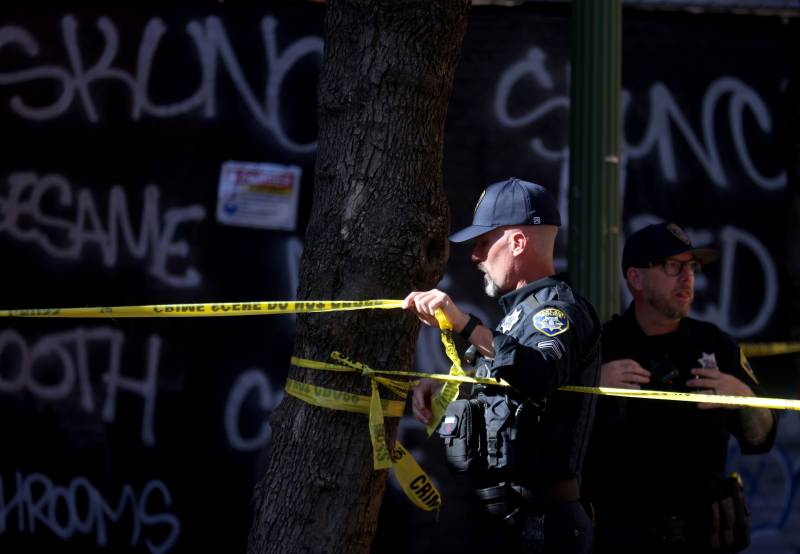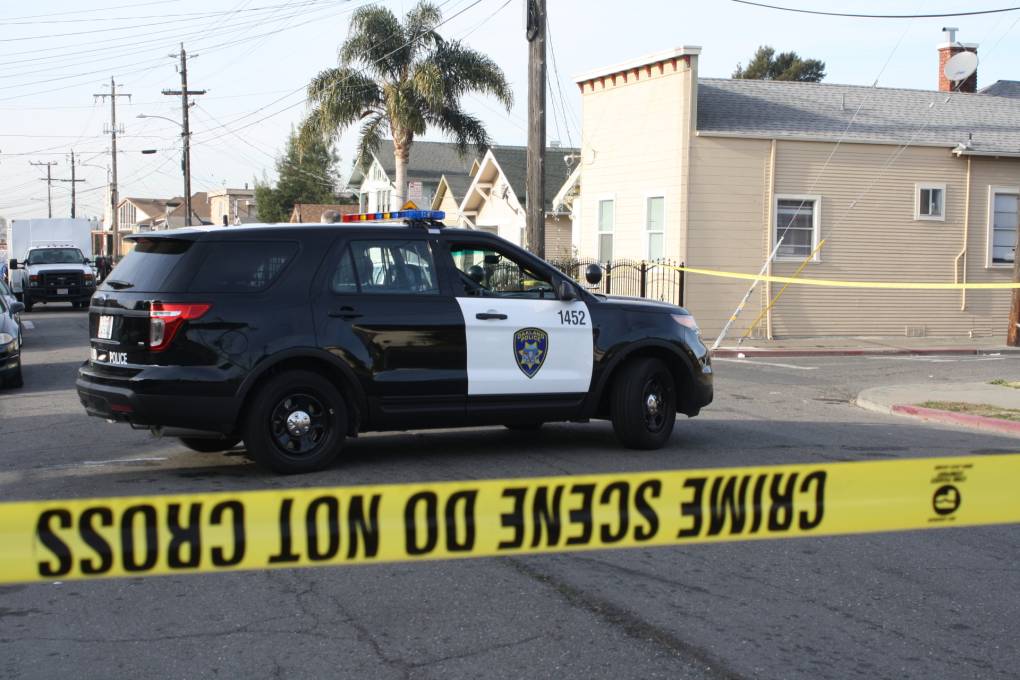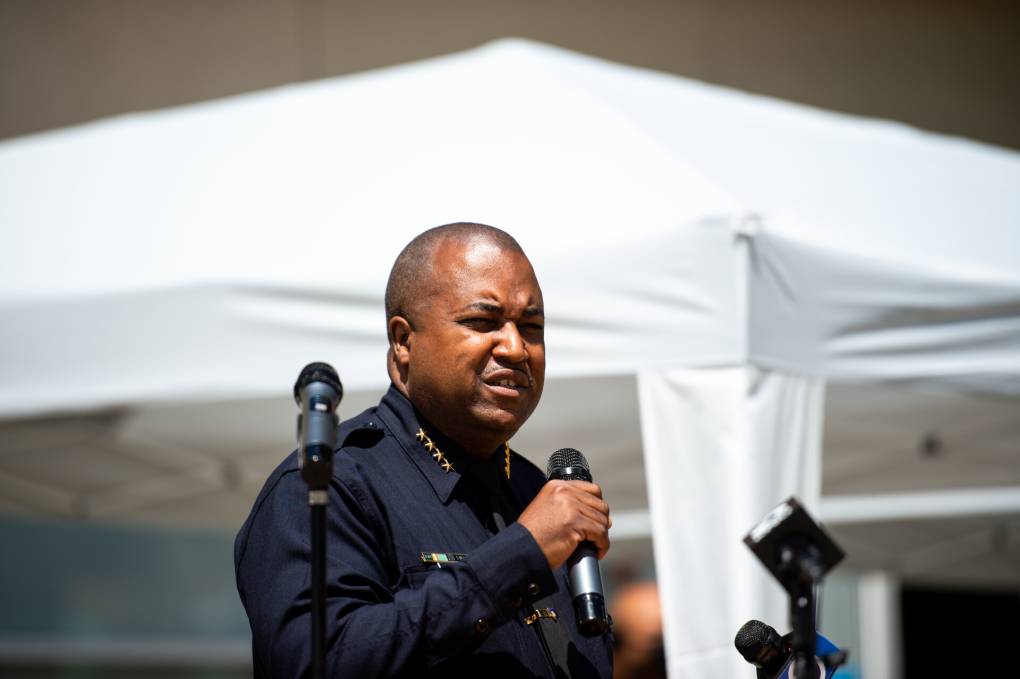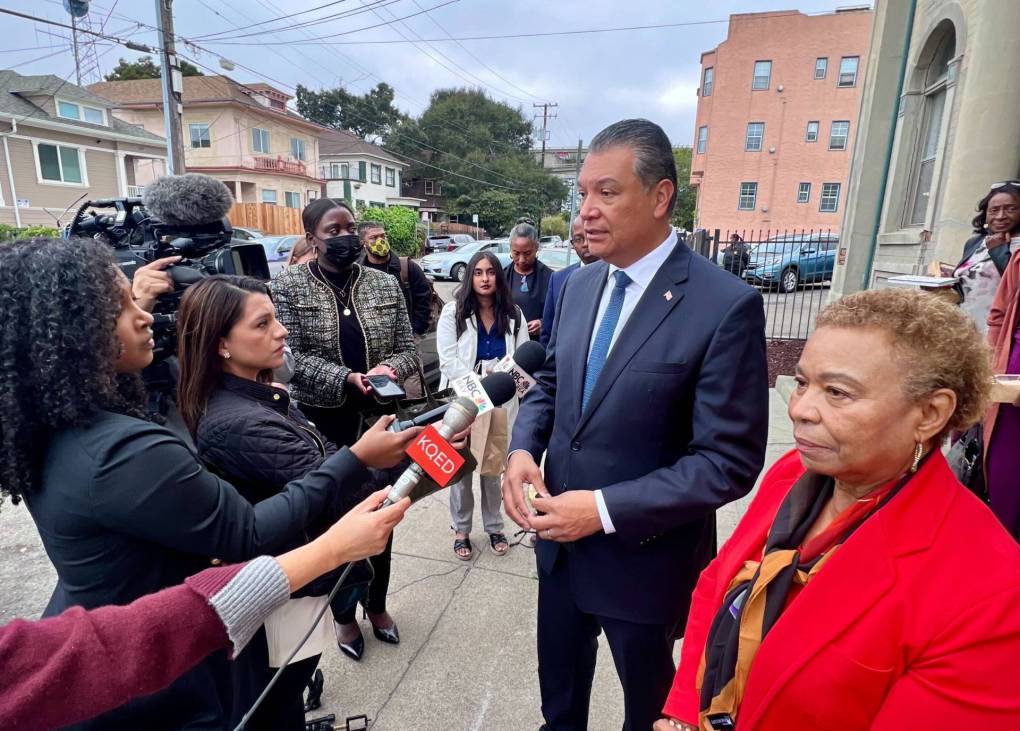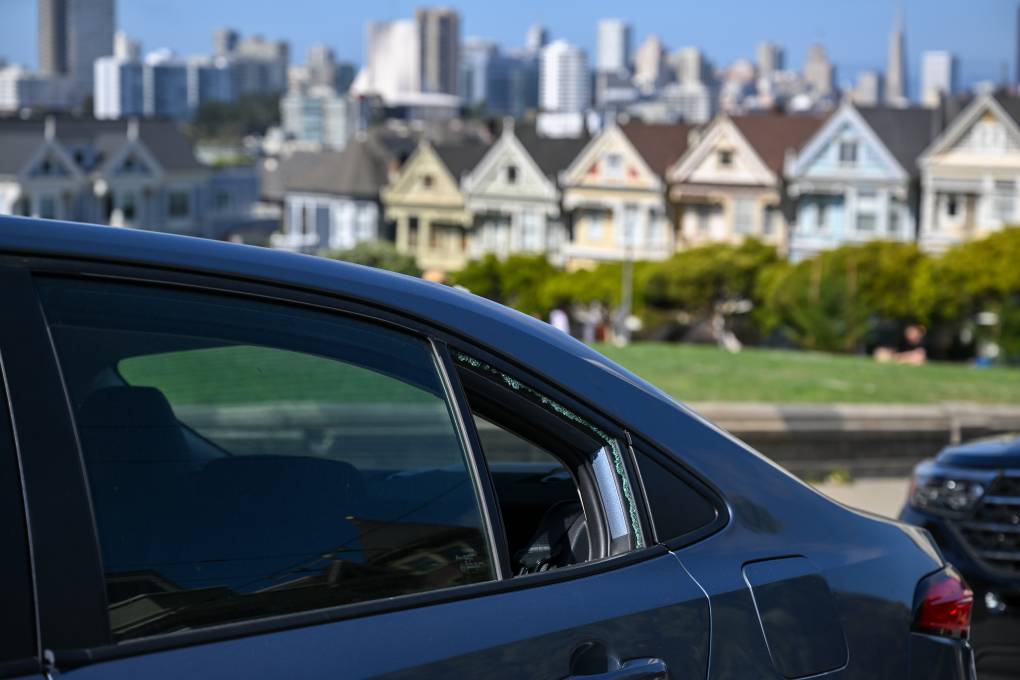While nearly every council member supported the resolution, some members of the public called in to say they disagreed with the fast-tracked police academy idea.
At Tuesday night’s city council meeting, Oakland interim police chief Darren Alison stated that the lateral police academies “have not been wildly successful in the past.” He cited a past example where the Oakland Police Department ran one such academy. The program brought in 22 applicants, and none were successfully hired.
Kalb’s resolution is also looking for additional support from federal agencies, like the FBI, to assist Oakland in investigating unsolved homicides and shootings.
However, at 714 sworn officers, Oakland currently has more police than it’s ever had, Thao recently told KQED. In addition, she said, the governor has assigned six additional California Highway Patrol officers to work with the city.
Other public speakers and council members expressed concern over the focus on adding police instead of meeting basic needs and addressing the underlying reasons why robberies and other crimes have increased recently.
“The child tax credit ended, food stamps in California were slashed,” said Councilmember Carroll Fife. “What we need to do is make people feel safe by making sure their everyday needs are taken care of.”
Misty Cross, a mother and member of the Moms of Magnolia Street housing activist group, said to the council, “We got to talk about the issues that are creating this. When I think about the robberies and the bipping and everything going on, and people who are committing these crimes, these are people in poverty, these are people adapting to their survival mode.”
